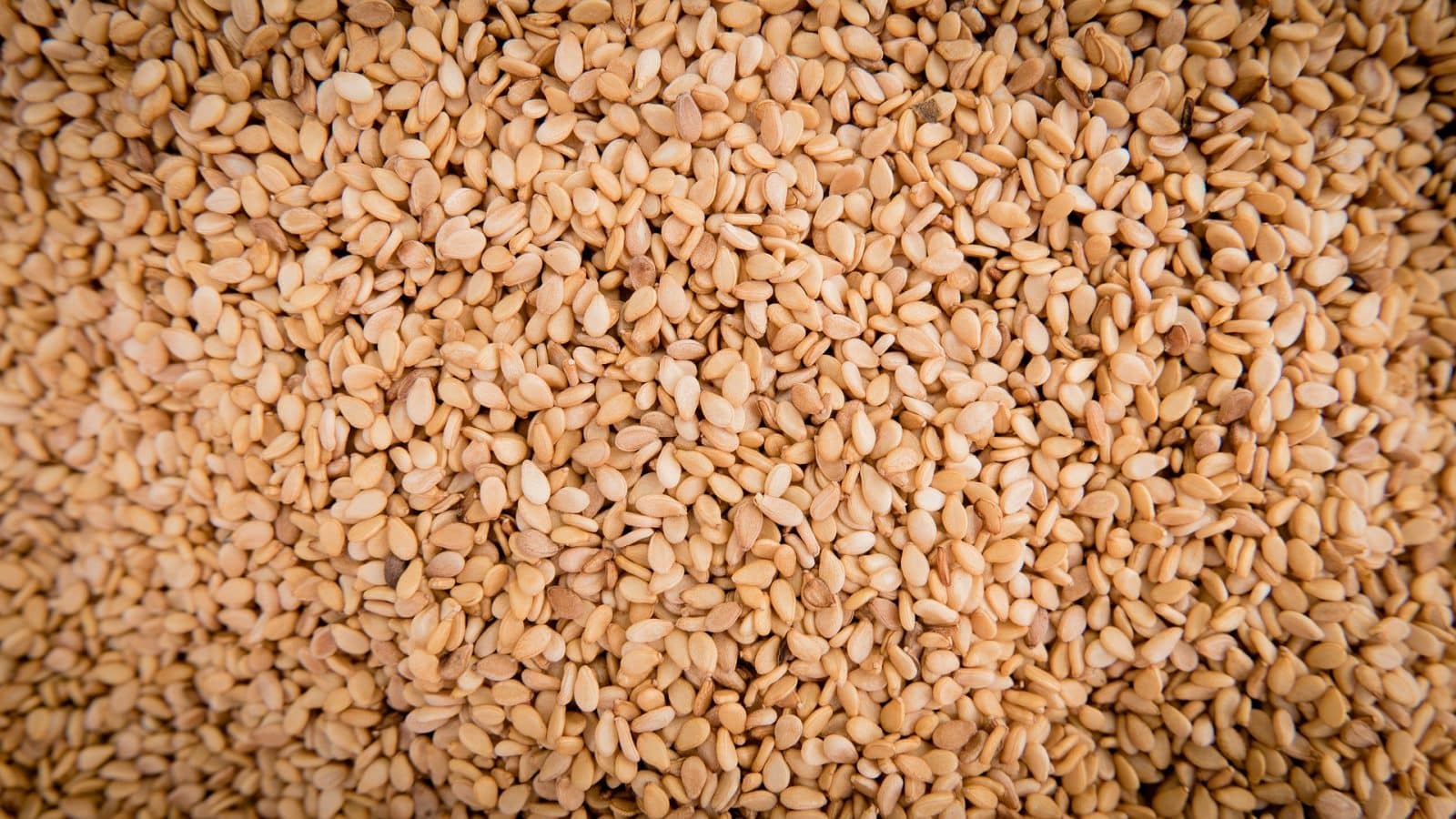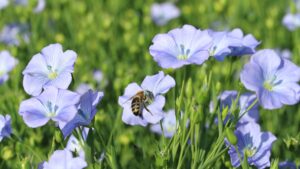Equinom launches its unique patented sesame variety to open new markets for the cultivation of sesame. Equinom has developed, high-yield, high profile, sesame seeds, that provide advanced organoleptic characteristics plus a shatter-resistance trait that makes them suitable for mechanized harvesting.
Big Advantages for Local Farmers
Sesame is a versatile, low-maintenance and economical crop to cultivate. It thrives in arid to tropical climates and can tolerate extreme heat up to 50°C. When sesame pods ripen, they shatter, dispersing the valuable seeds. This restricts them solely to manual harvesting, where much of the sesame is lost and is more vulnerable to contamination and infiltration of dirt and sand.
Equinom’s technological achievement will provide local farmers with a new platform for growing sesame of a higher nutritional profile and sets the ground for the advancement of a more responsible supply chain, greater price stability and cost-effective growth. This technology also brings new hope to farmers located in desert regions where extreme weather conditions threaten crop performance. For consumers, this means food manufacturers can incorporate highly nutritious, clean and safe sesame into their products.
Sesame Yields Its Full Potential
“The global sesame grain market is worth US$9 billion annually — a promising figure, however still far from meeting its full potential,” says Itay Dana, marketing director for Equinom. “Part of the Equinom strategy is to boost yield performance as well as the nutrient profile, while scaling-up global commercial growth and trading of this highly nutritious seed. By deploying our innovative breeding technology, we can transform the dynamics of a stagnant market, ensuring product safety and traceability throughout the supplying chain.”
Equinom has been able to breed sesame with a superior nutritional profile tailor-made for a variety of innovative and commercial products, including baking, confectionary, tahini, oil and flour.
Sustainable Sesame Seeds
Sesame is drought resistant and its deep tap root allows exploitation of soil nutrients and moisture reserves. Growing sesame requires limited fertilizer and water, and little or no use of pesticides due to naturally high levels of disease and insect tolerance. It fits almost any cropping system, and conforms to most planting and irrigation methods.
Equinom’s technology and expertise helps local farmers to eliminate waste, boost oil-yield by up to 100 percent, improve quality, and reduce the crop’s global footprint. These innovative sesame seeds also help farmers on marginal lands secure added income, diversify output, and reduce the costs of import by up to 40 percent.
Sesame grows particularly well in soils infested by cotton root rot and presents a promising side crop for US cotton farmers. Equinom will bring increased cultivation of sesame to the US, Australia, and the Southern regions of Europe with a sustainable crop that fits in with the marketing ideals of food companies and environmental values of consumers.
According to a 2017 report in the Journal of Agriculture and Food Security, in sub-Saharan regions sseasonal production of sesame per farmer is quite weak and as agricultural lands get drier under the scenario of climate change, this will impact on production of many crops and will lead to a bigger reliance on sesame oilseed crop that can withstand harsh environments.
“We are determined to make sesame a more profitable crop for farmers and to develop sustainable sesame cultivation in the West,” say Oron Gar, vice president and product manager for Equinom. “These sesame varieties are a game-changer for food companies that want full control of their supply chain to ensure food traceability and safety. Growing high-quality sesame locally also ensures consumers gets clean, nutritious products from farm-to-fork.”












